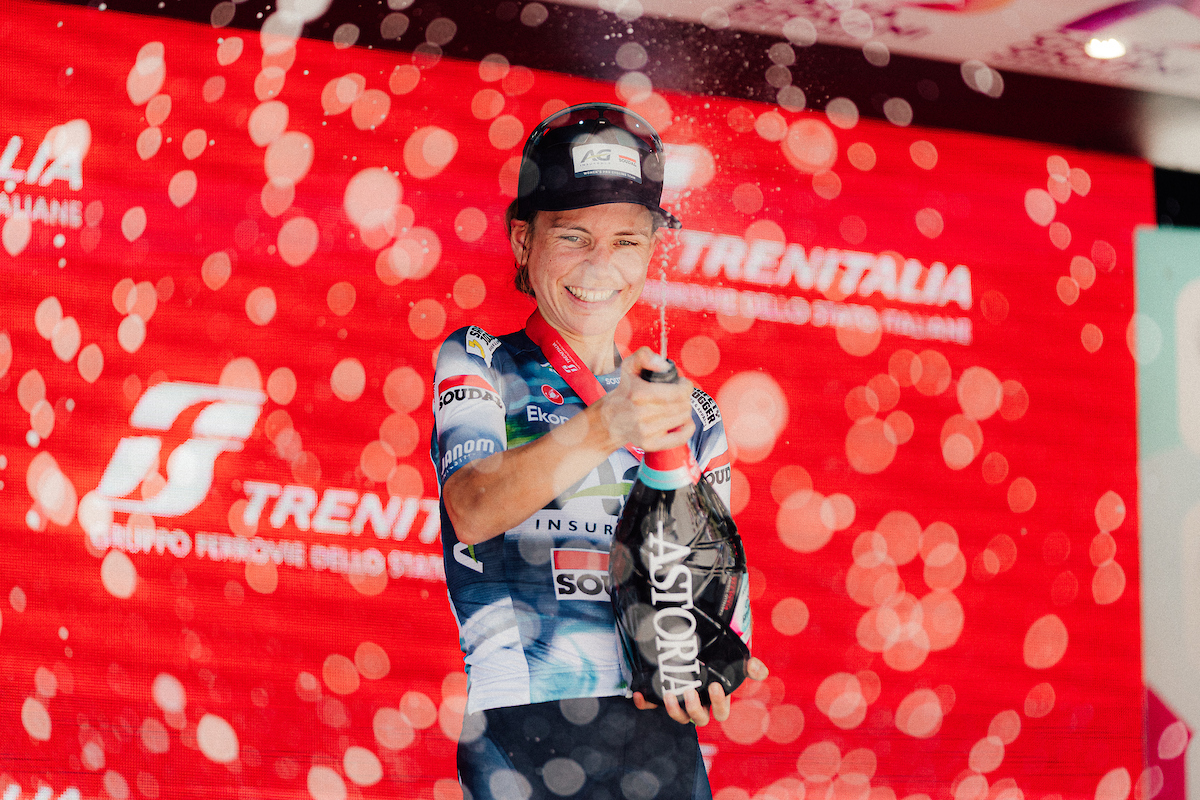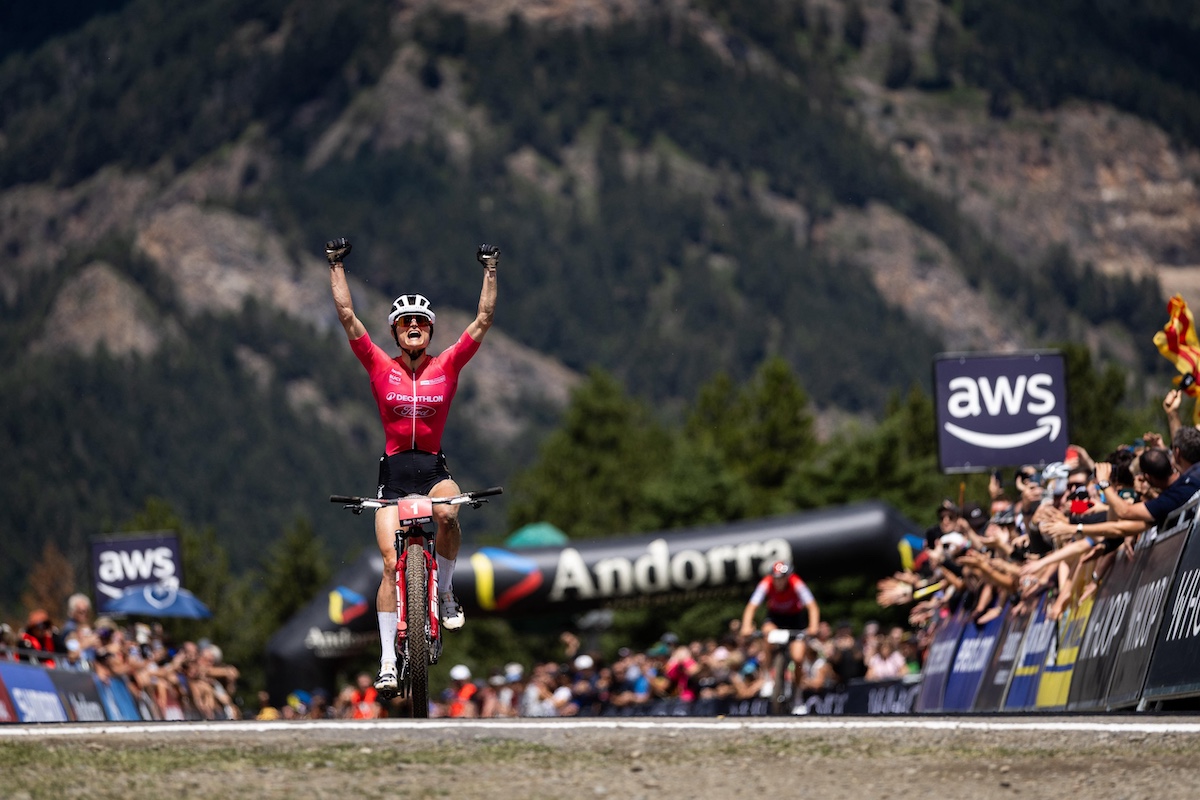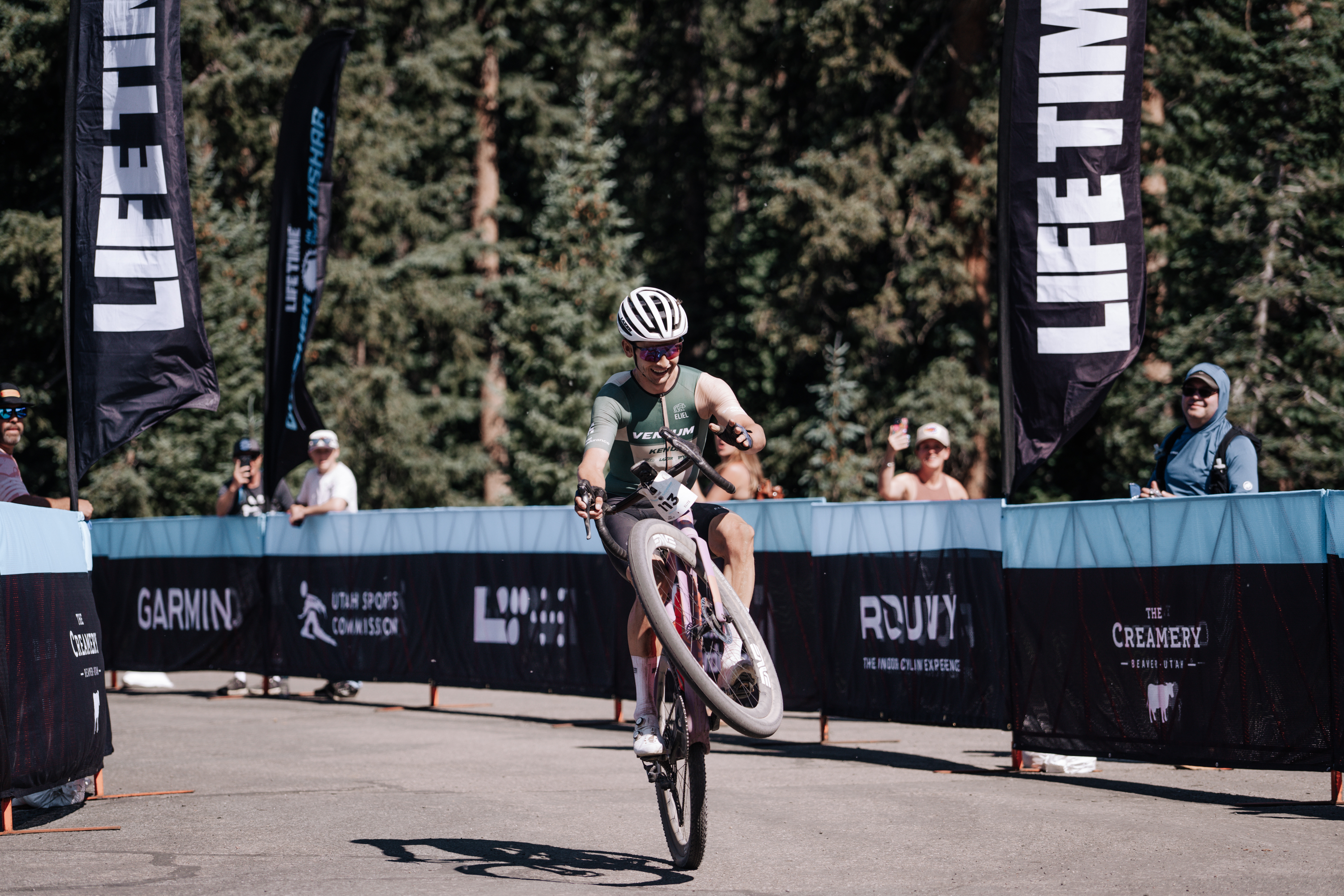Cancellara fires to win Sanremo solo
Elite group led home by 2006 winner Pozzato Swiss Fabian Cancellara...
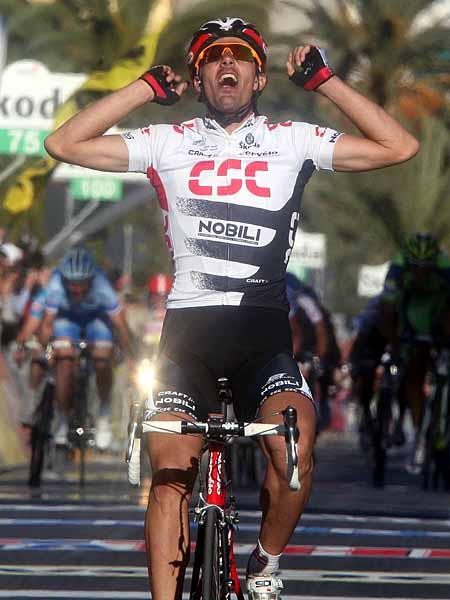
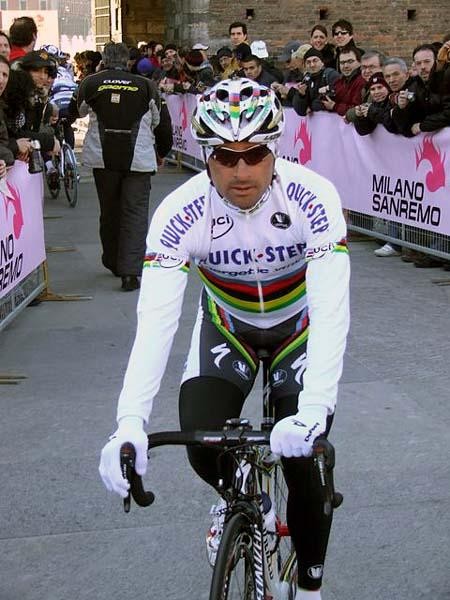
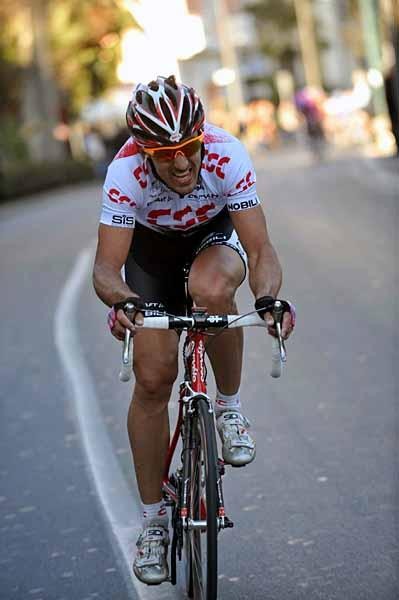
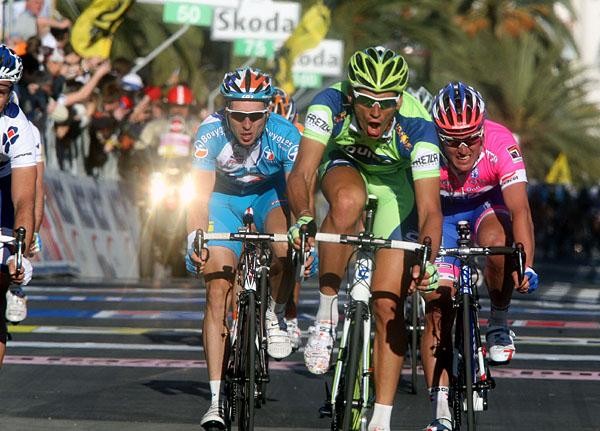
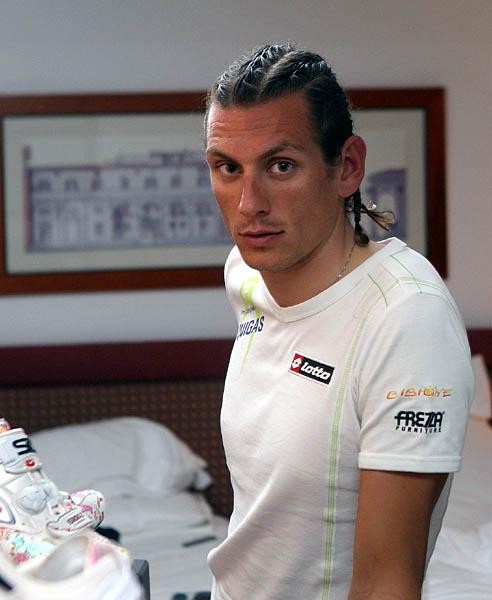
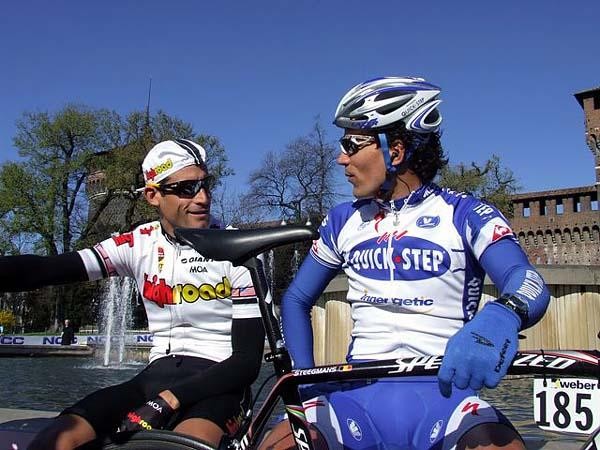
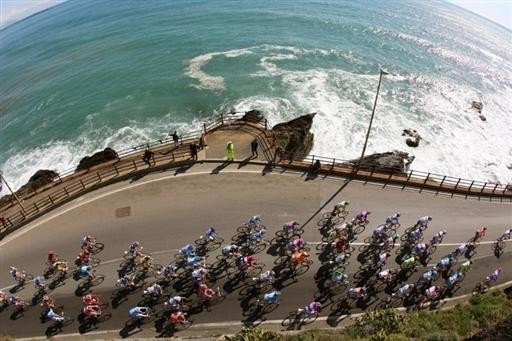
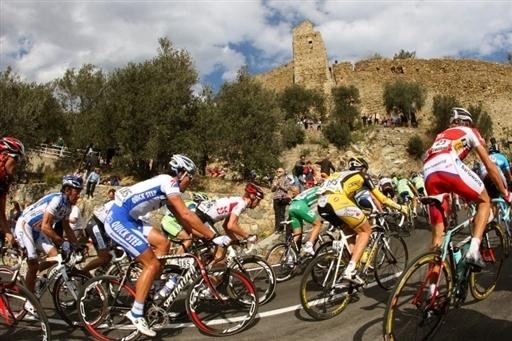
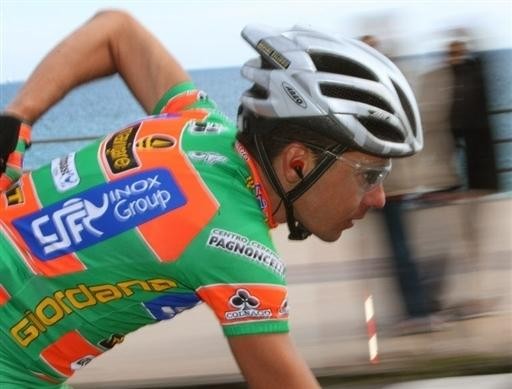
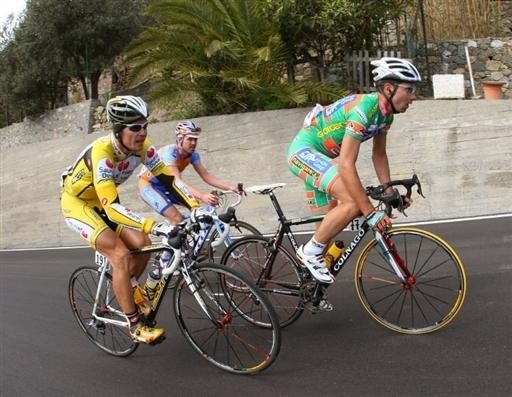
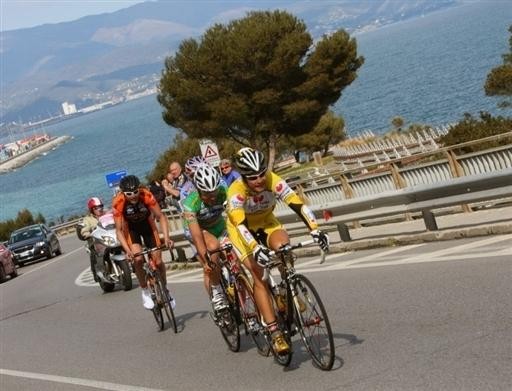
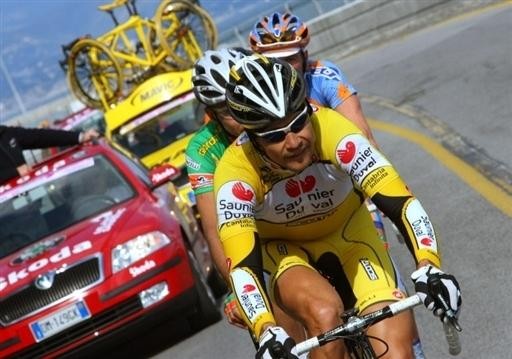
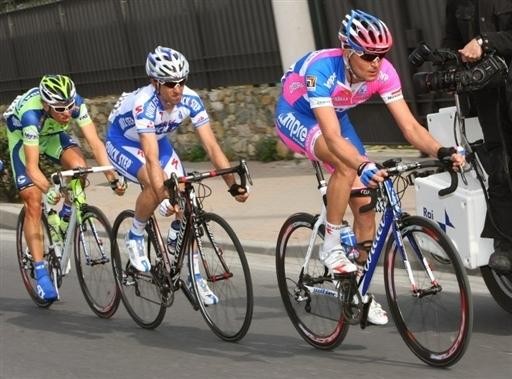
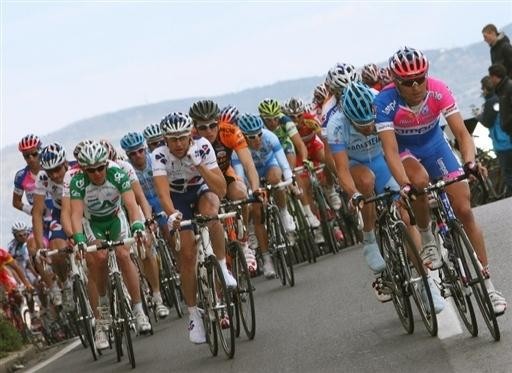
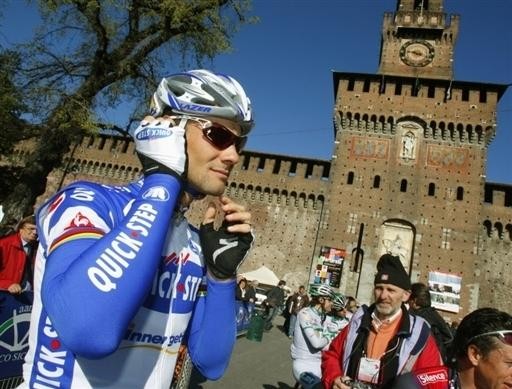
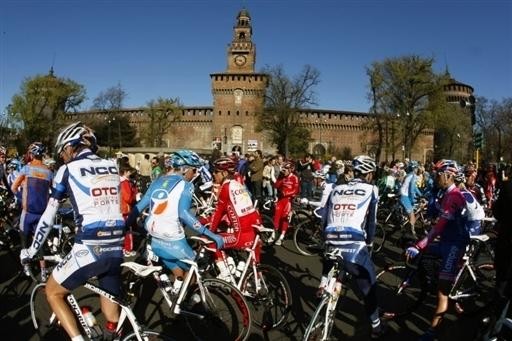
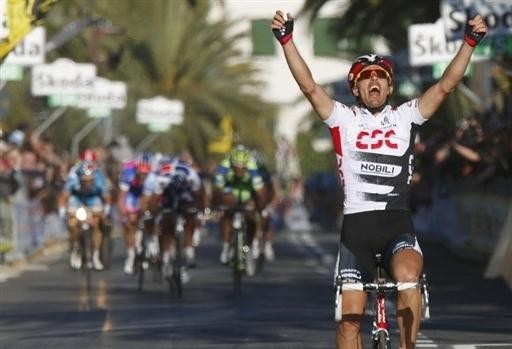
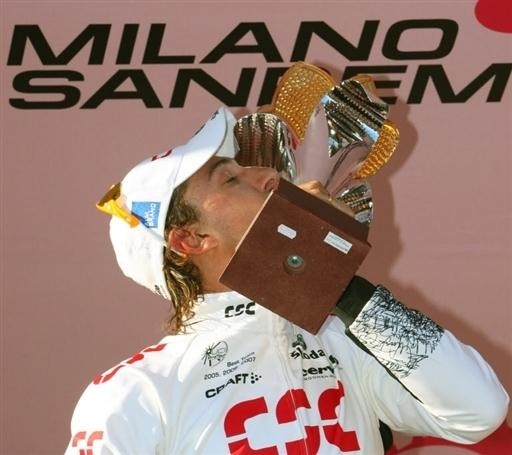
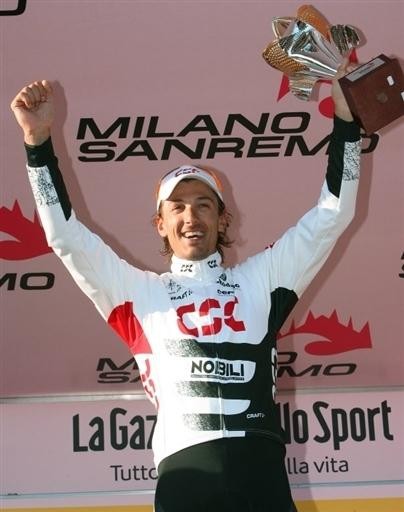
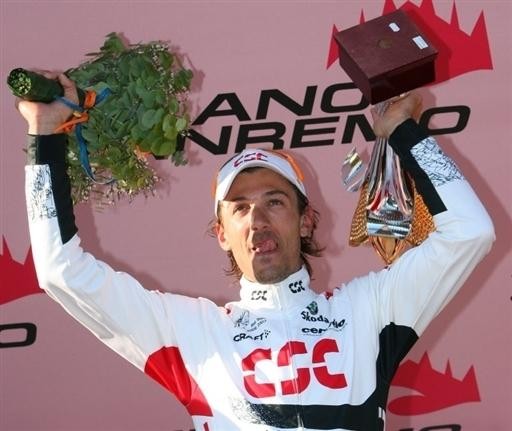
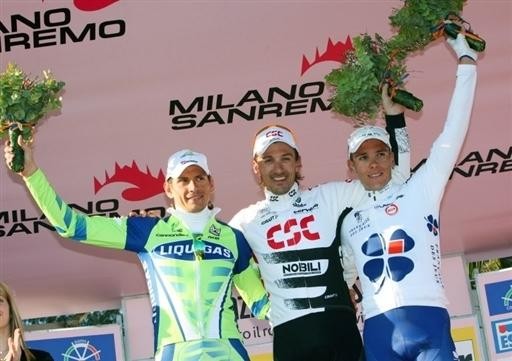
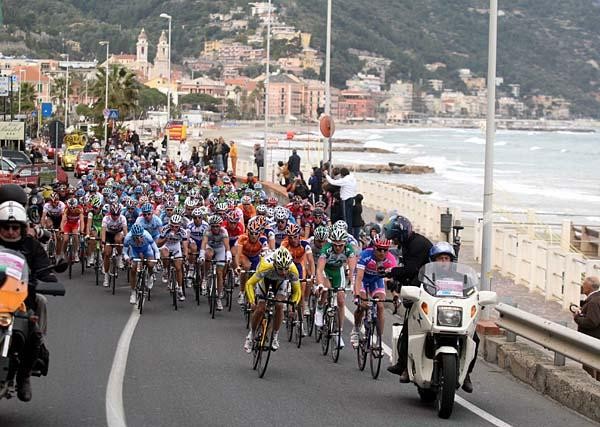
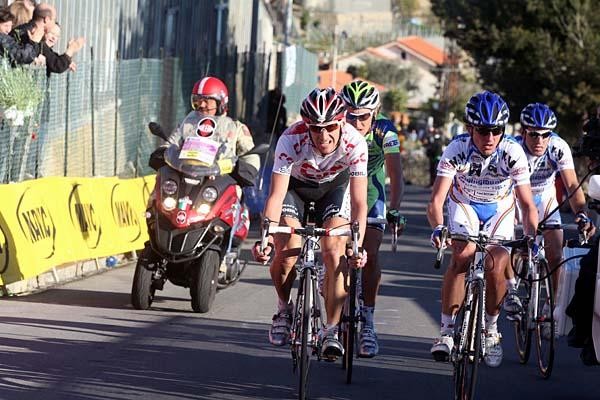
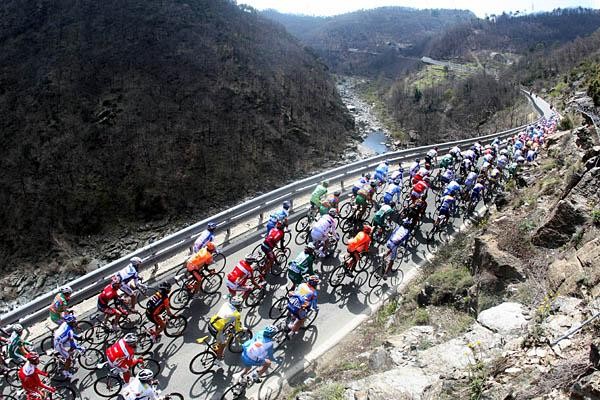
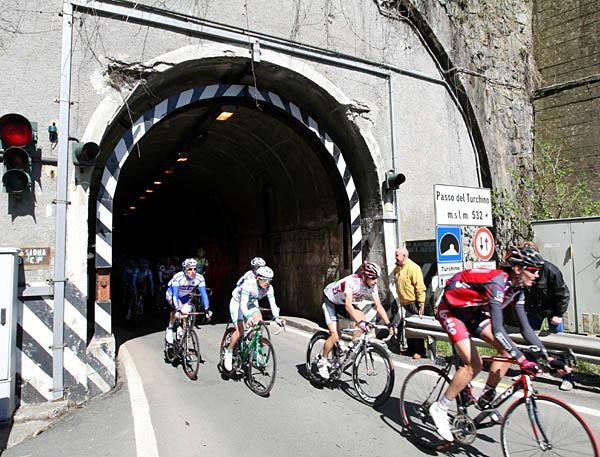
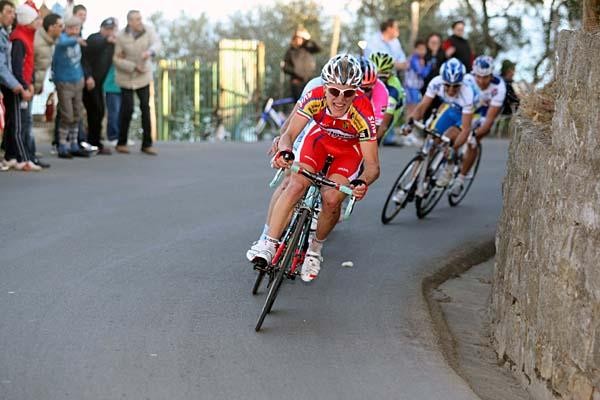
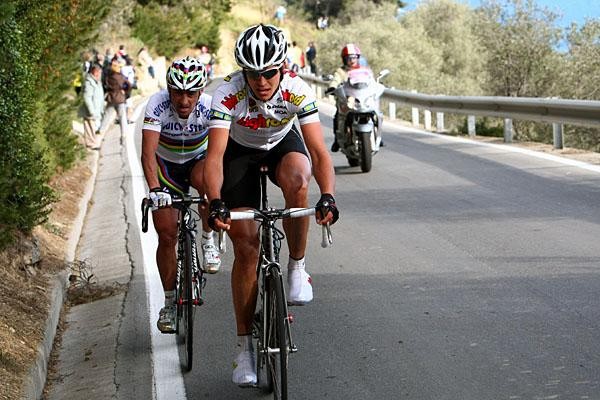
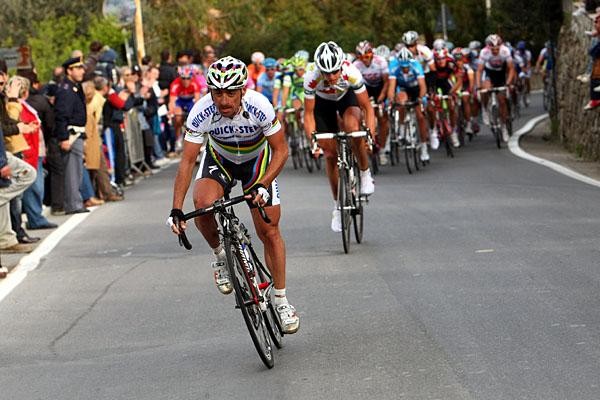
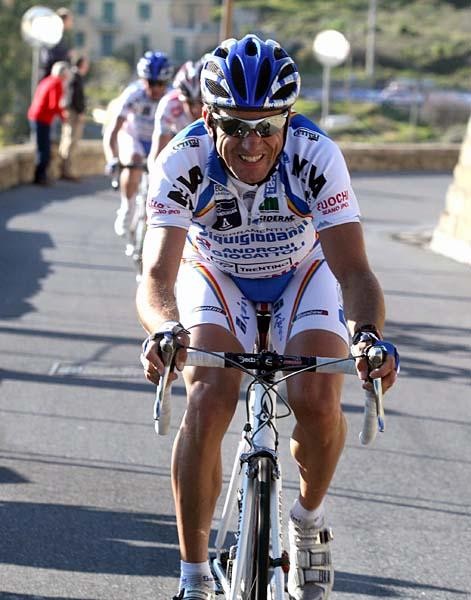
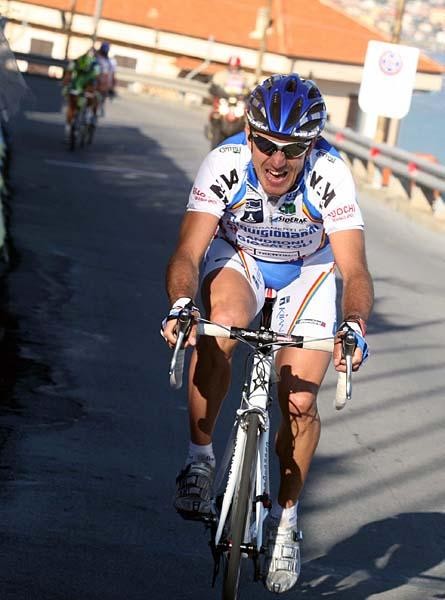
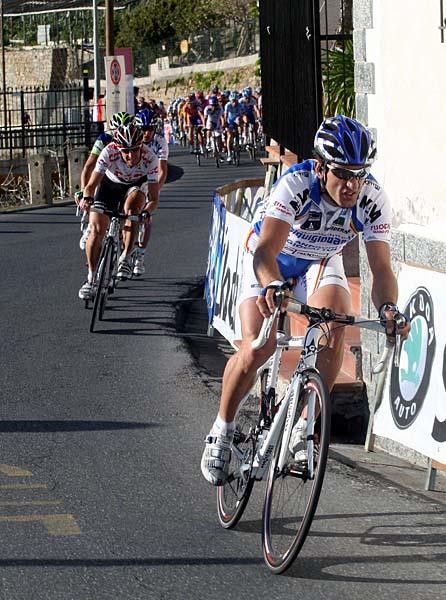
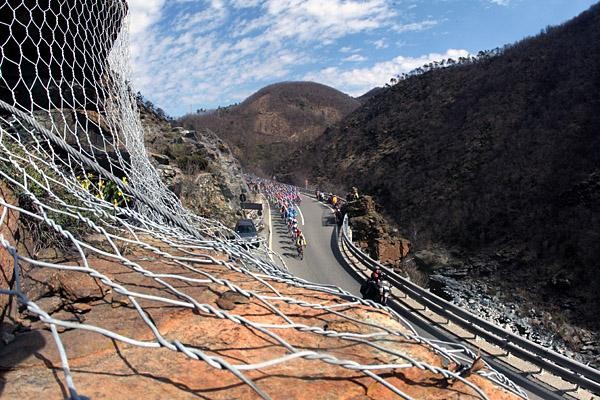
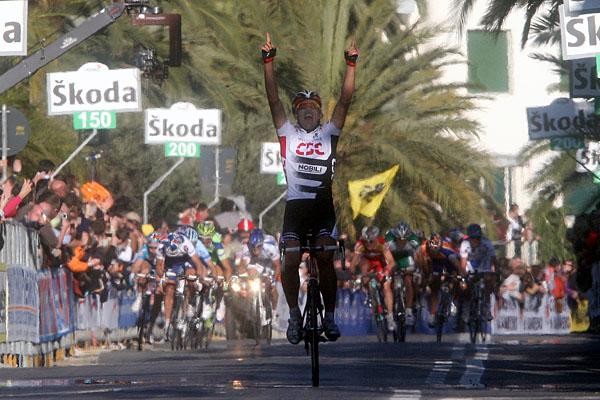
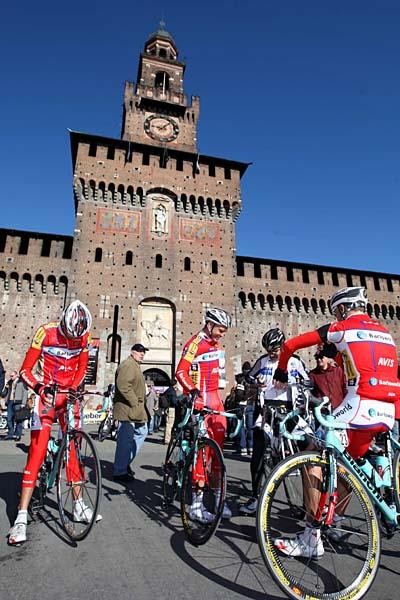
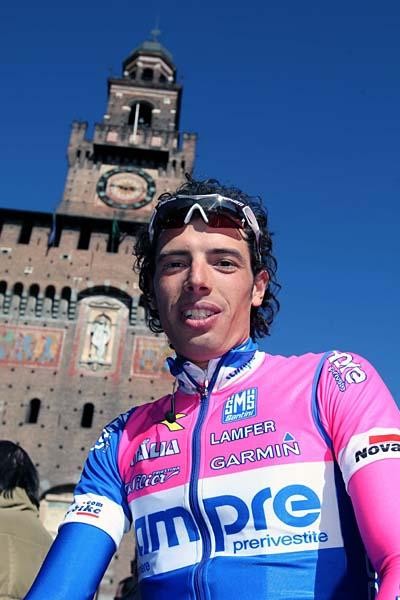
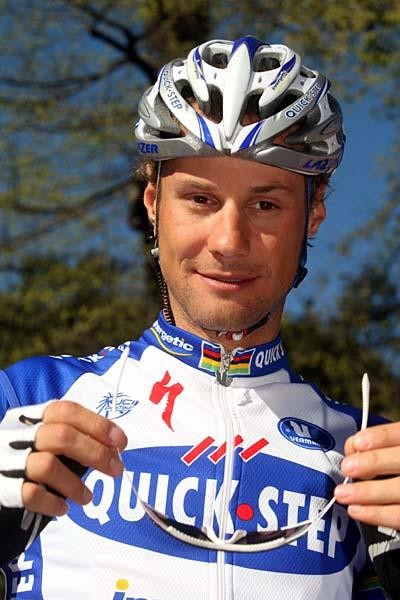
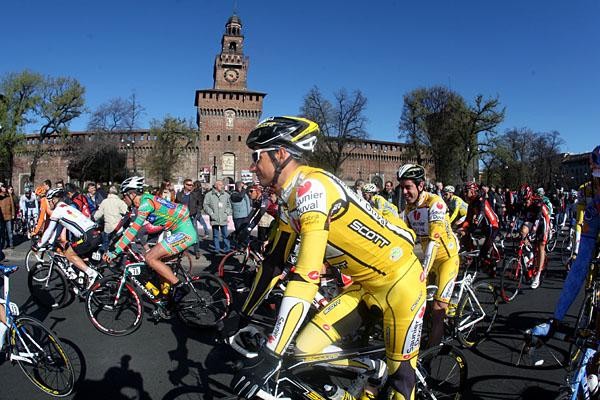
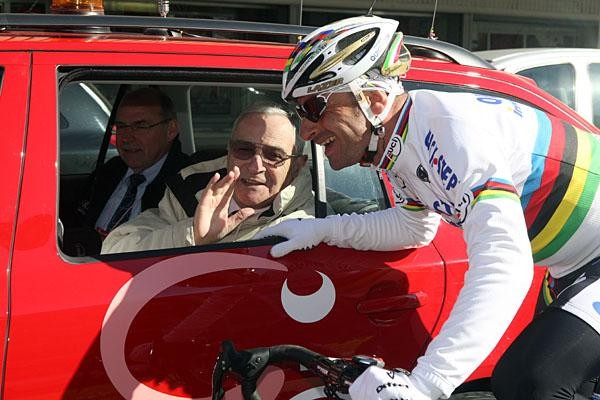
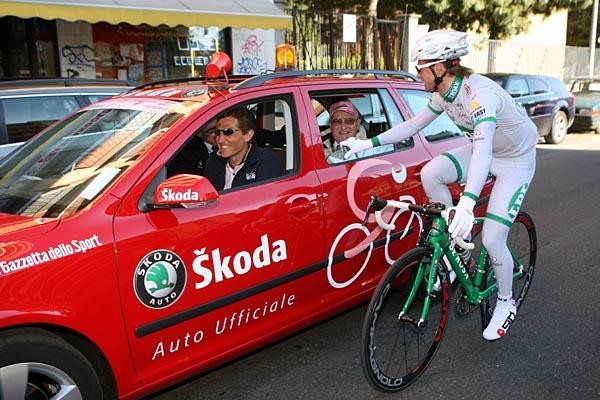
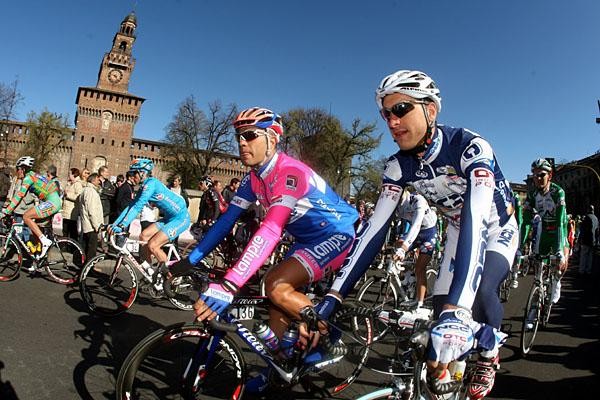
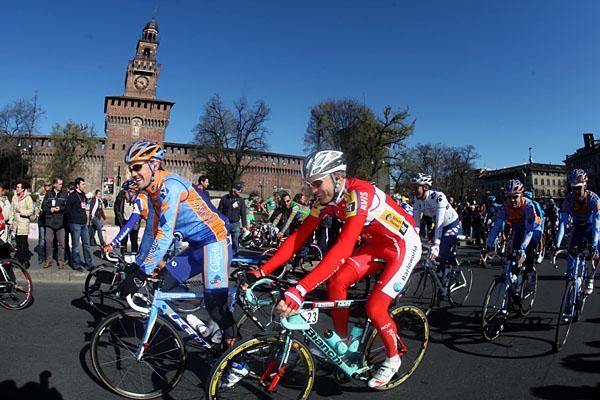
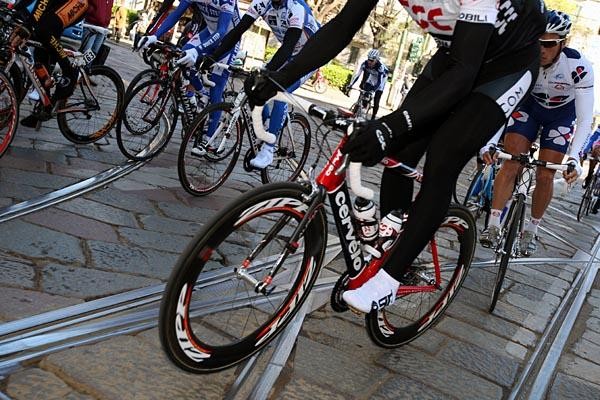
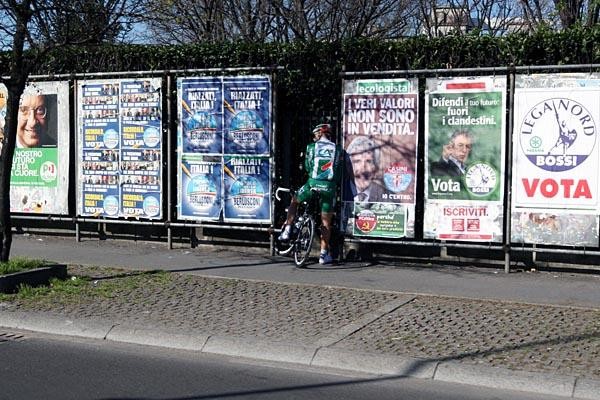
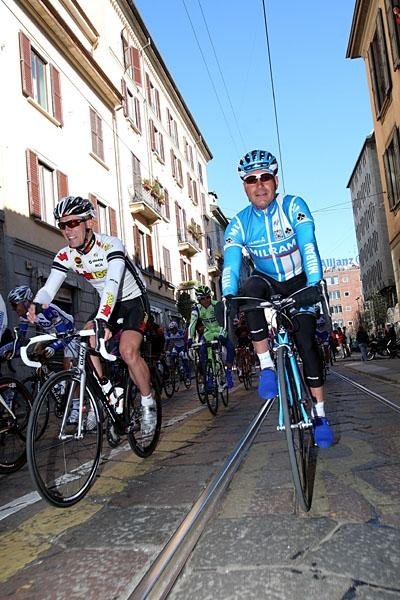
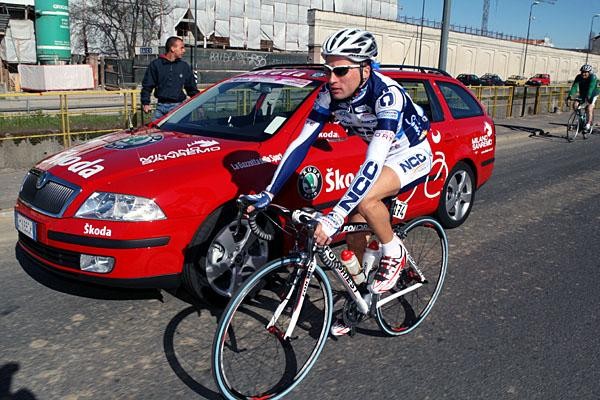
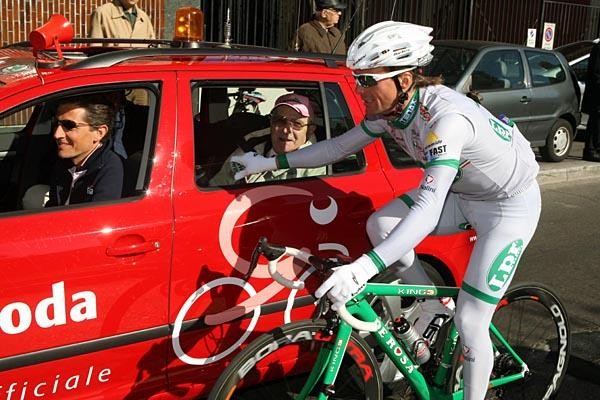
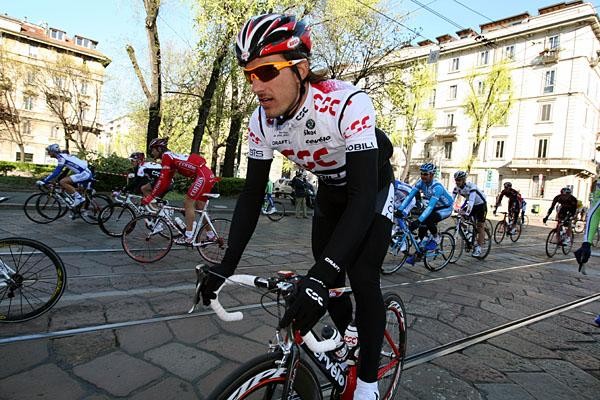
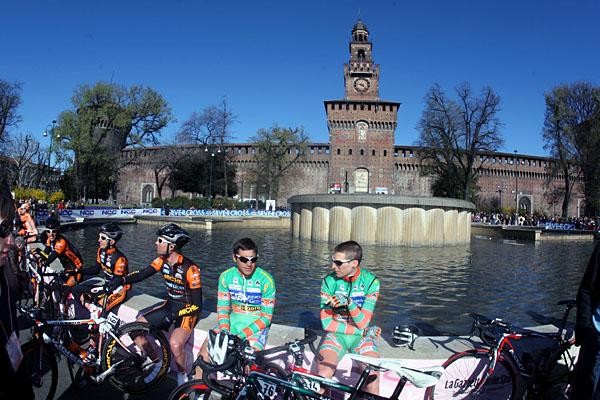
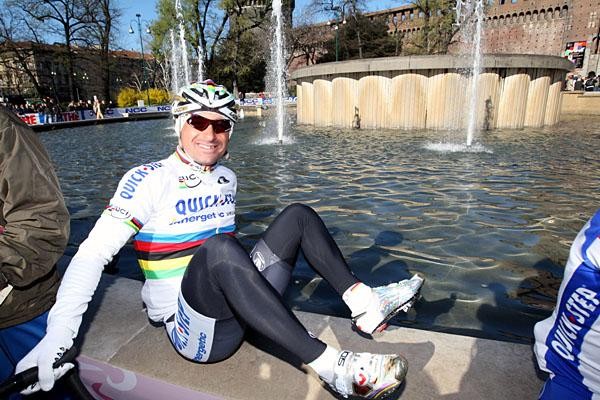
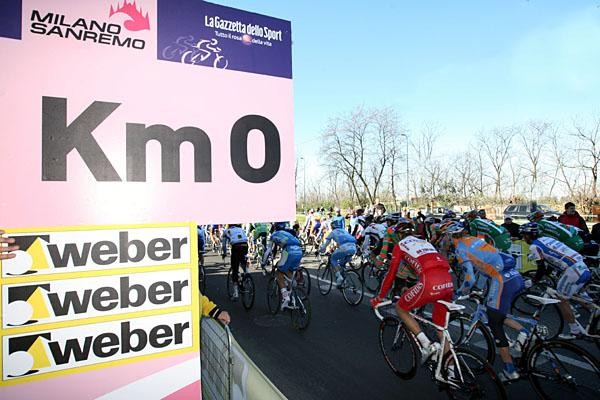
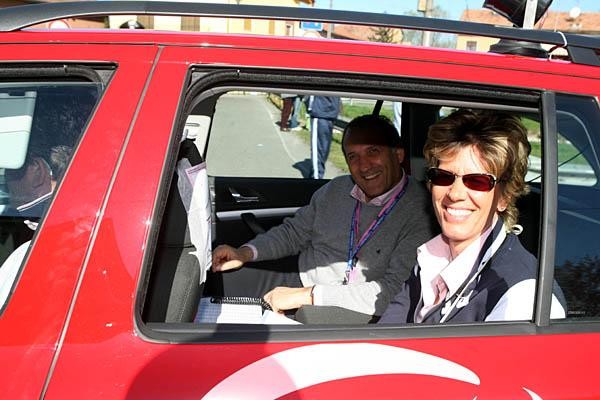
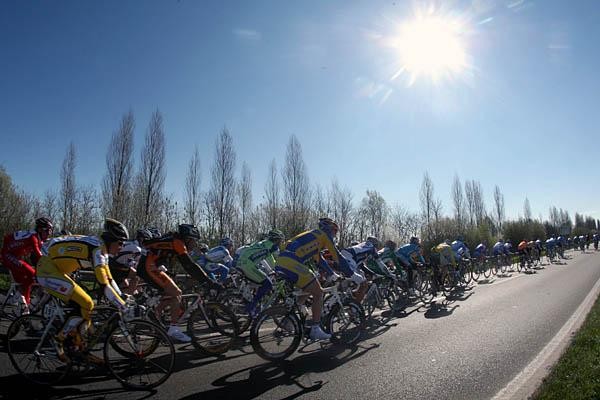
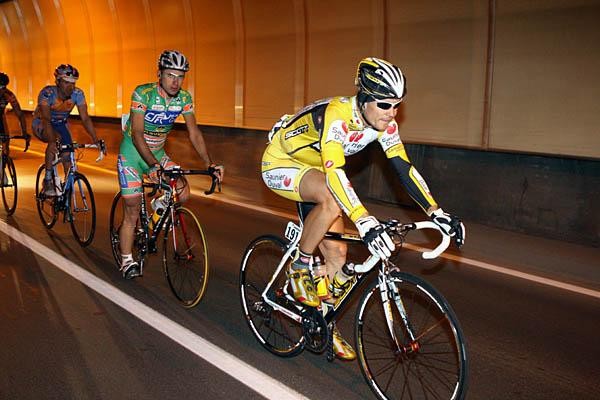
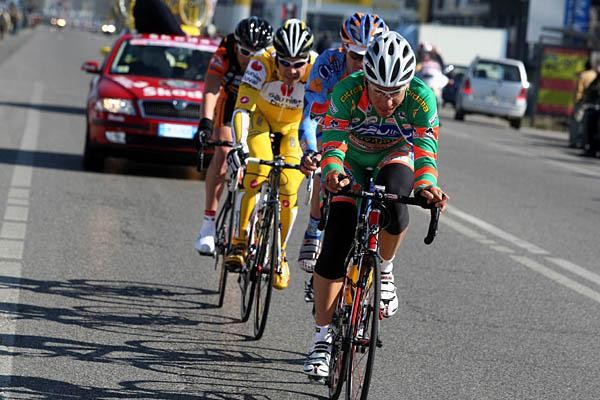
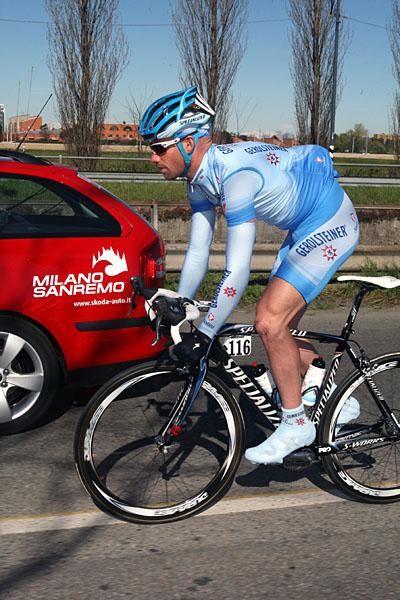
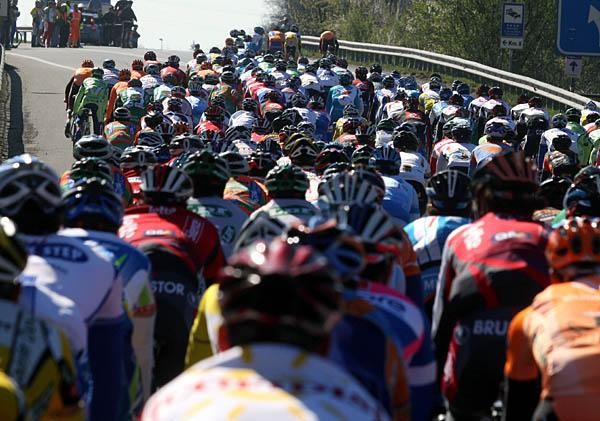
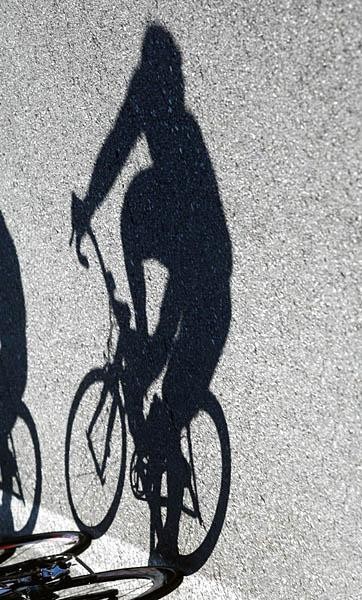
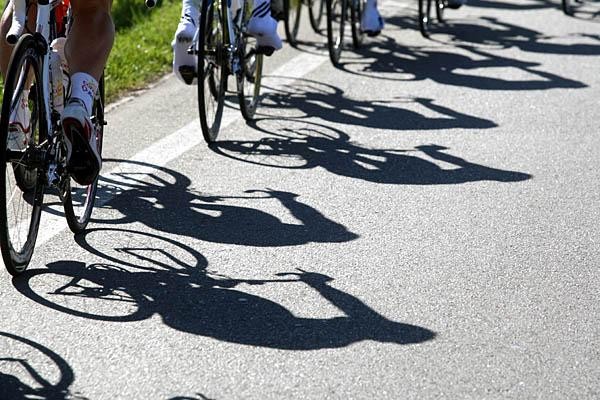
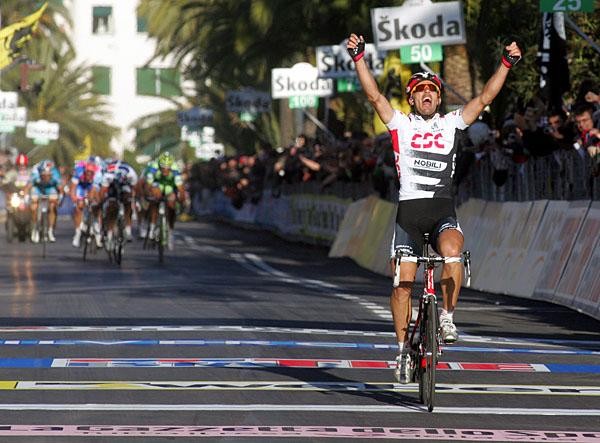
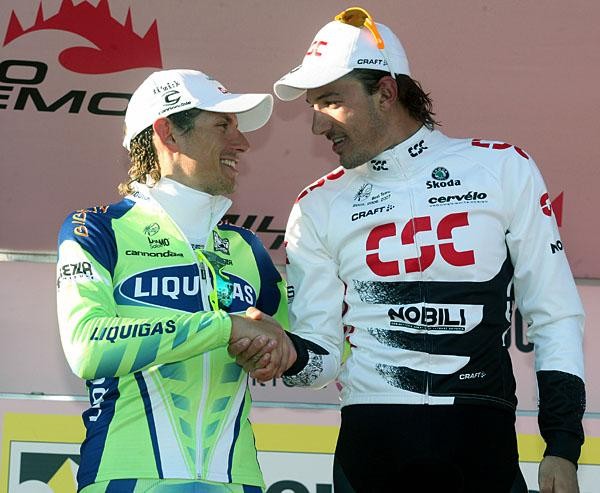
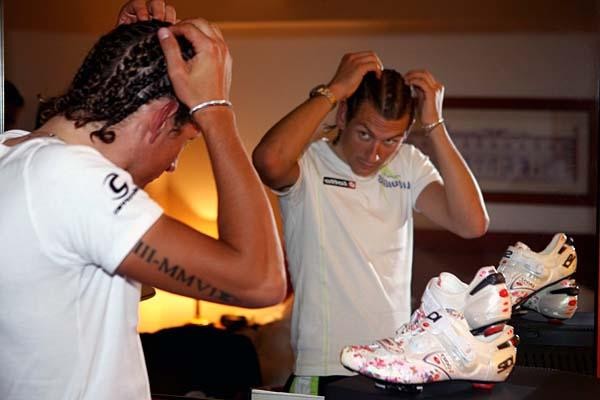




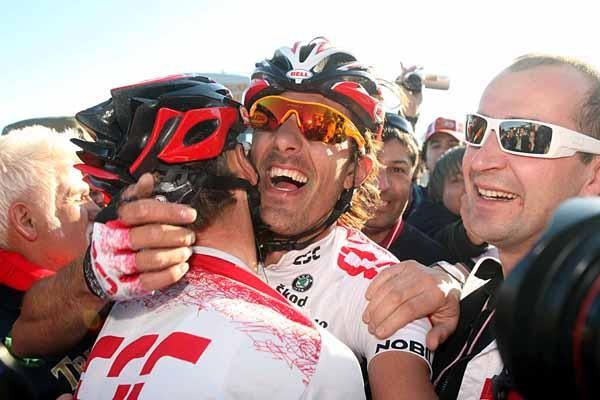
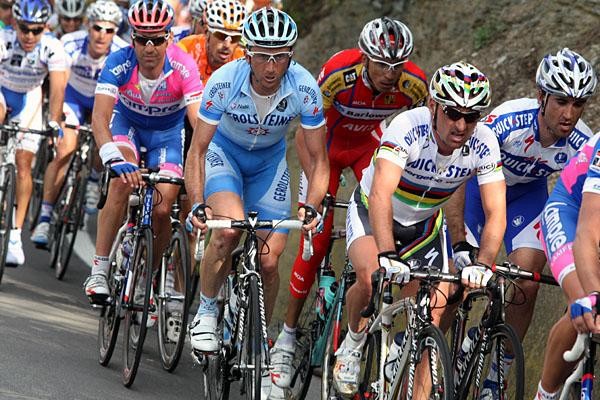
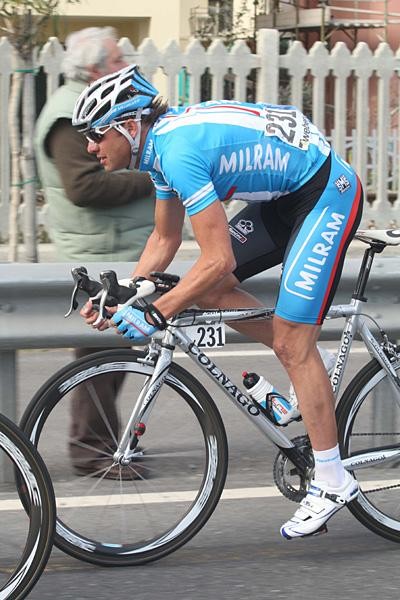
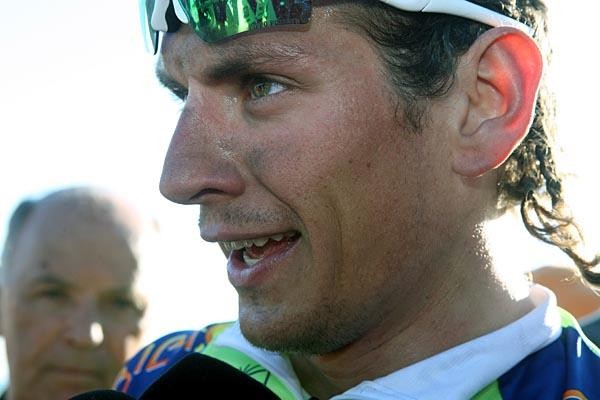
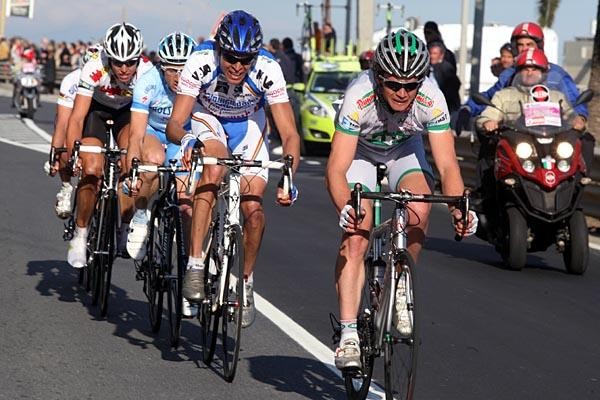
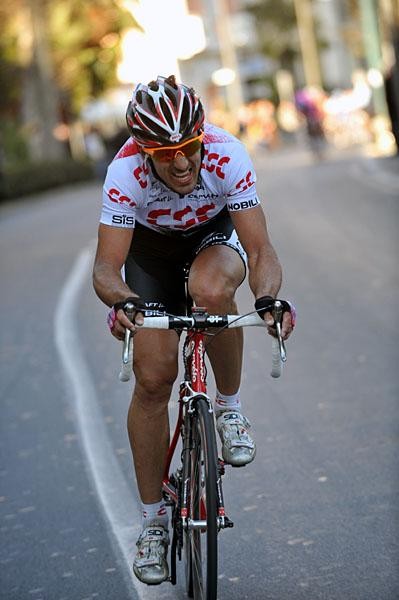
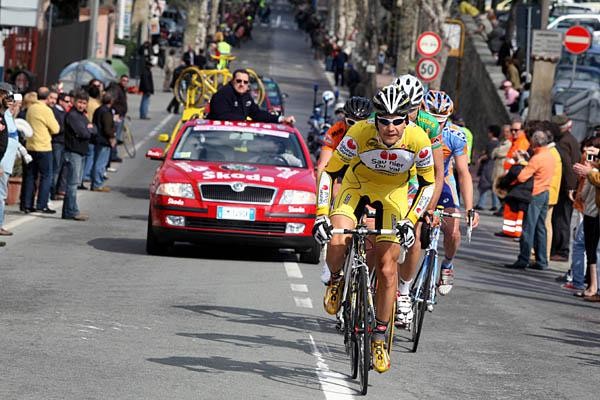
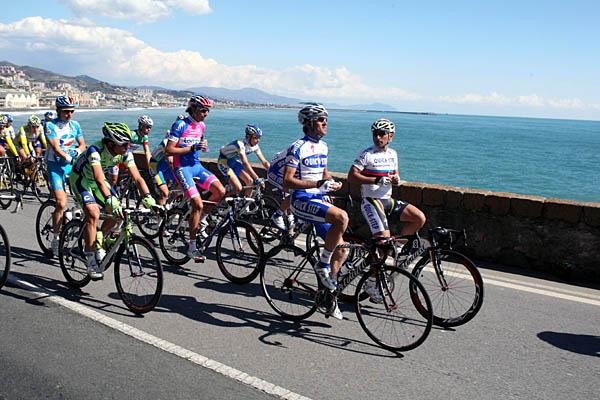
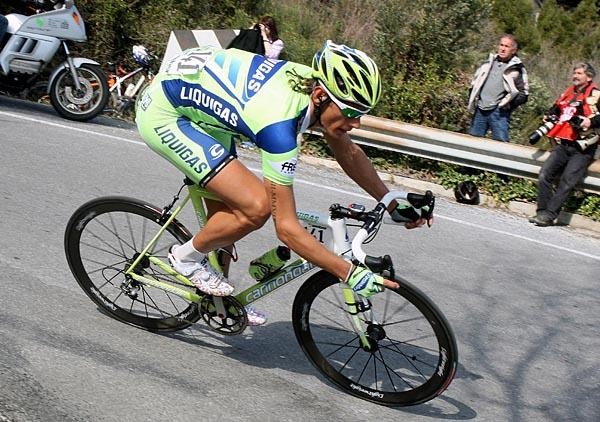
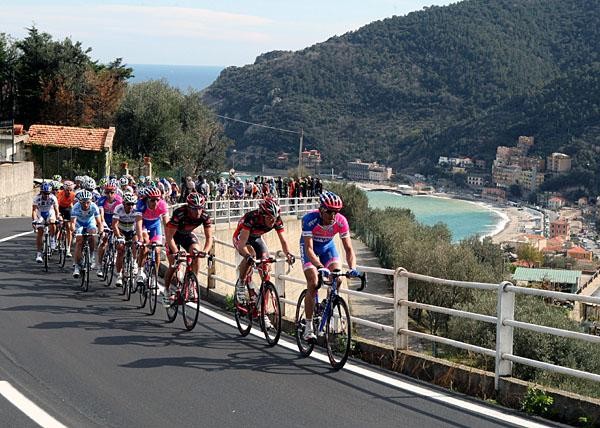
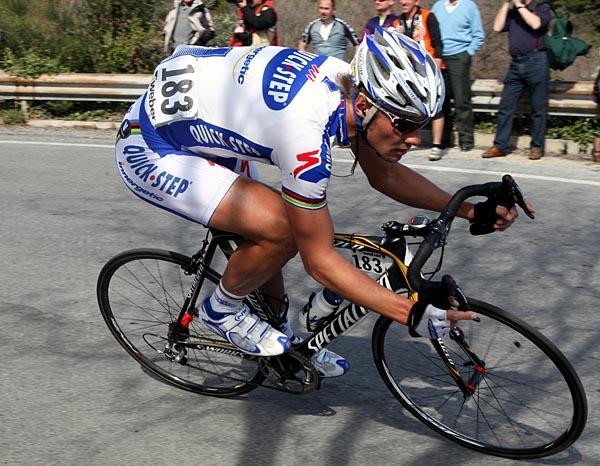
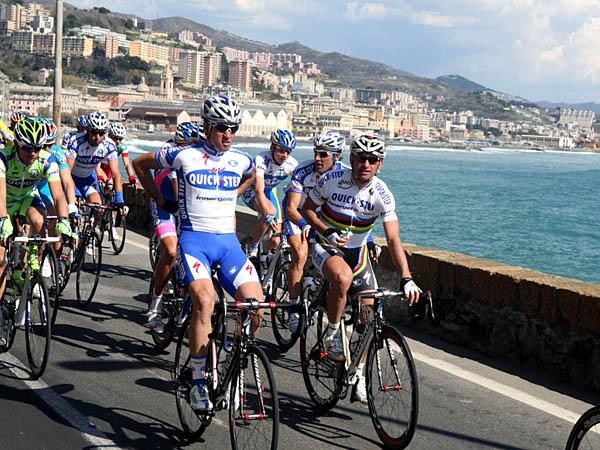

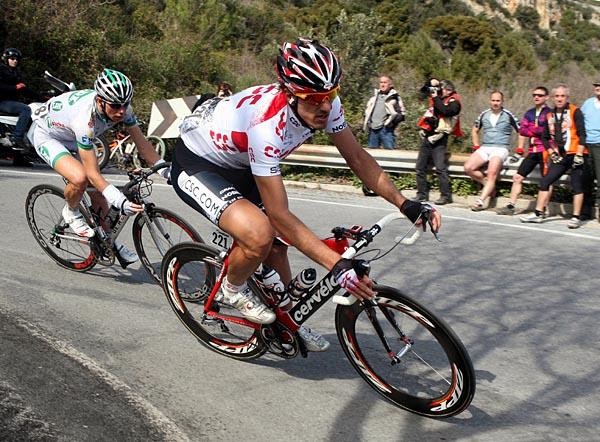
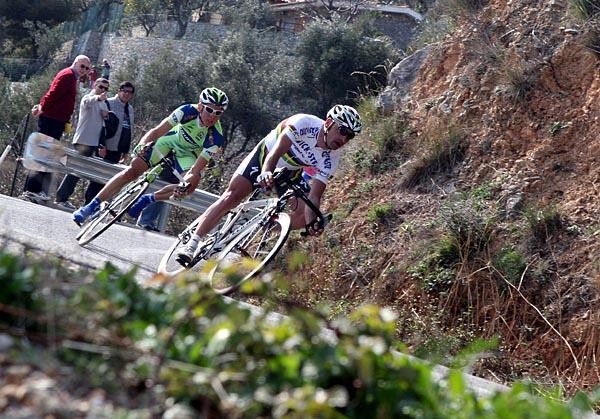
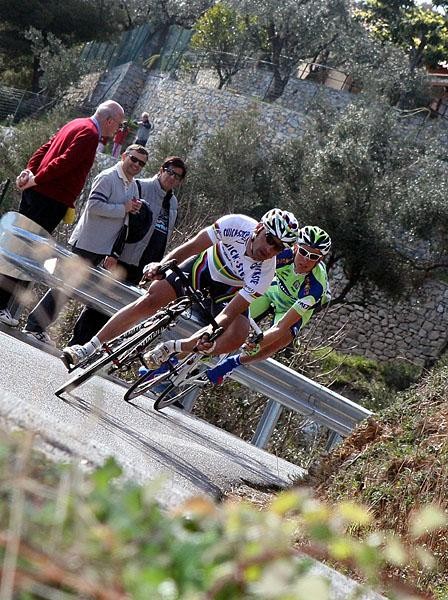
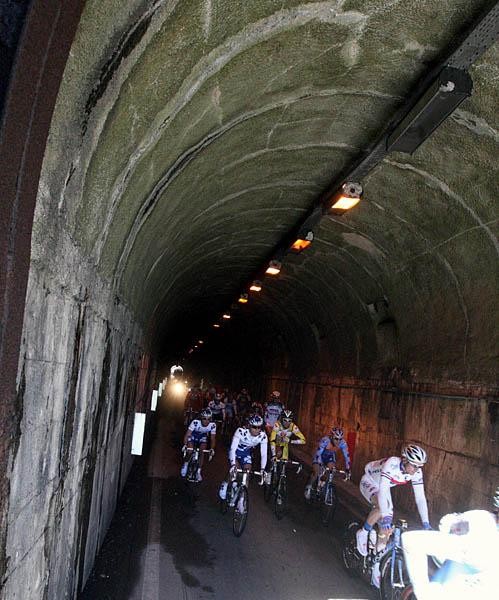
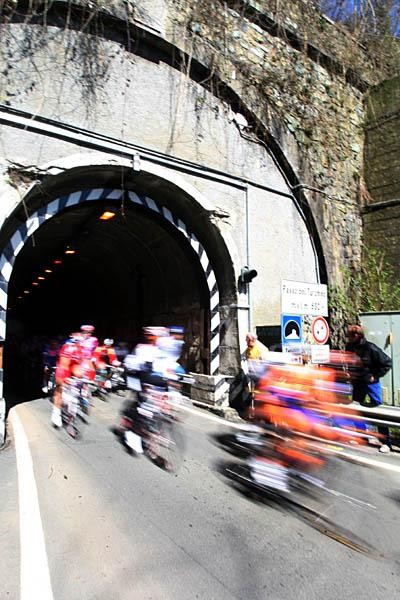
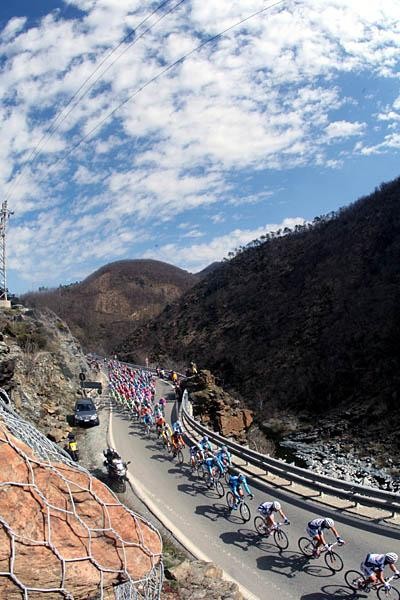
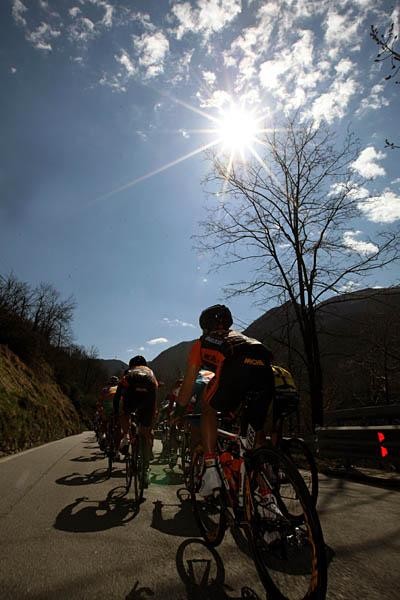
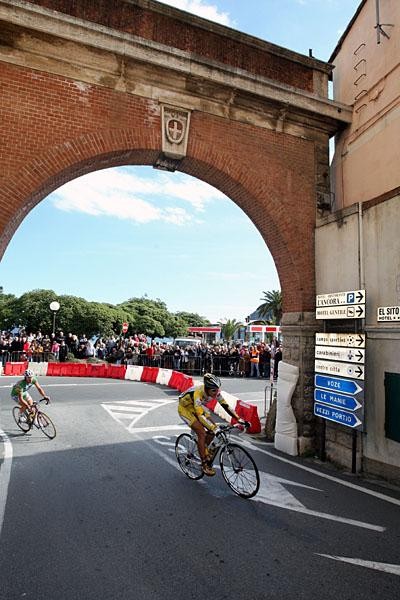
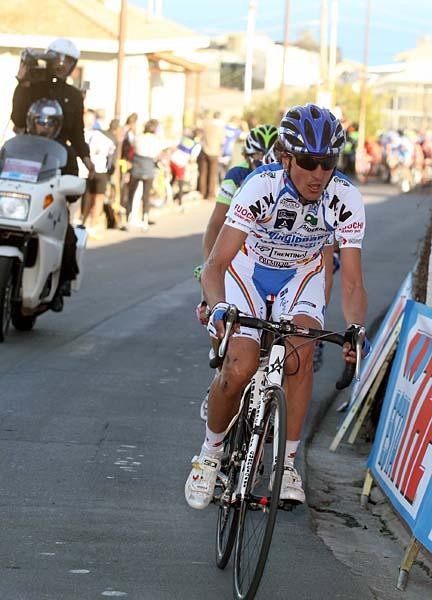
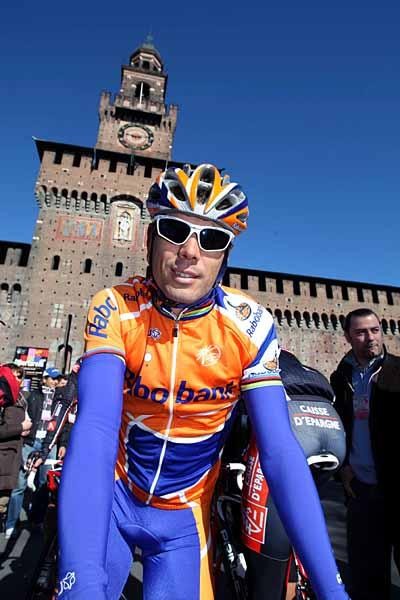
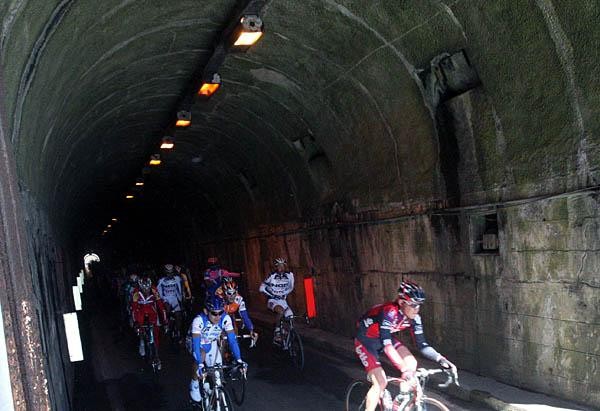
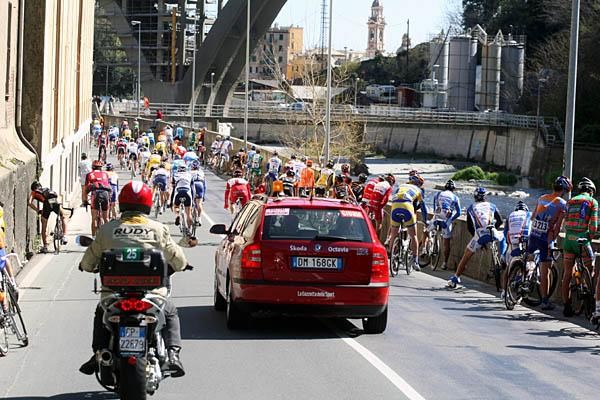

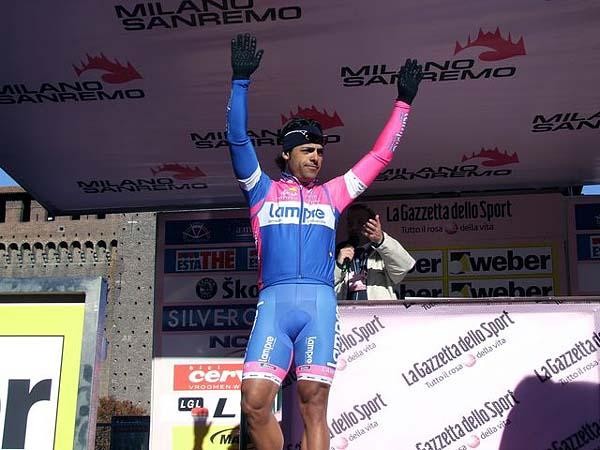
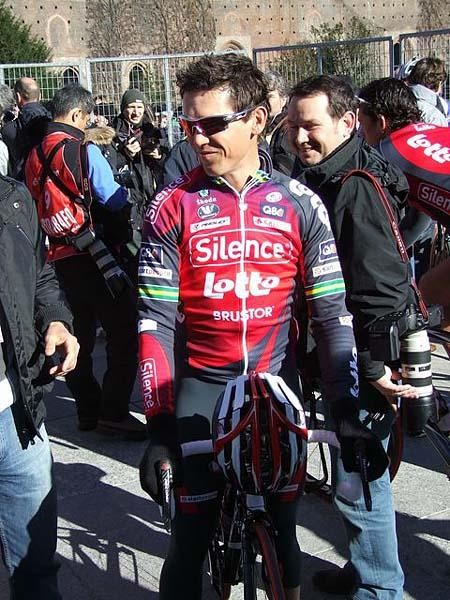
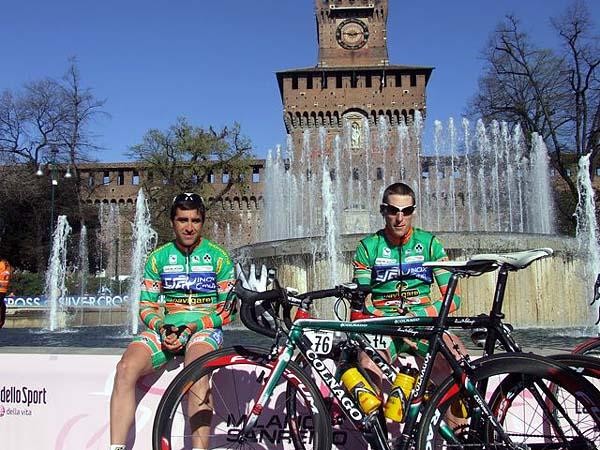
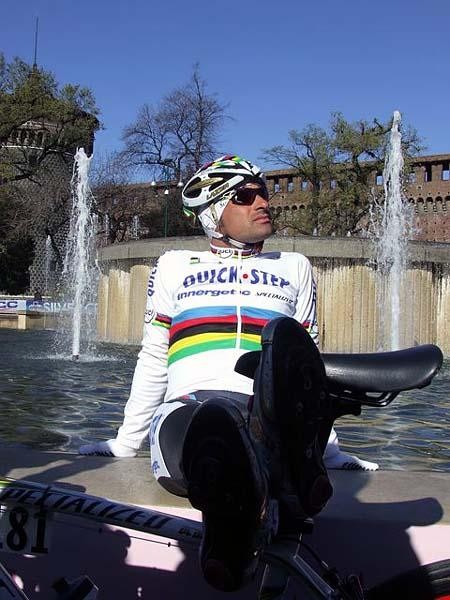

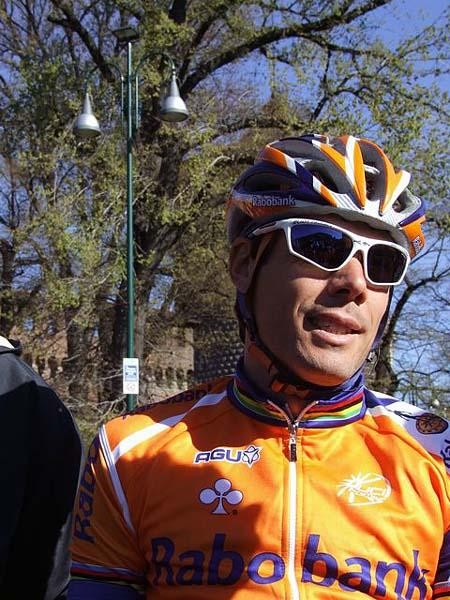
99th Milano-Sanremo - HC
Italy, March 22, 2008
Elite group led home by 2006 winner Pozzato
Swiss Fabian Cancellara succeeded in fulfilling the pundits' prognostics leading up to Italy's grandest one-day race, Milano-Sanremo. The 27 year-old of Team CSC – recent winner of Monte Paschi Eroica and Tirreno-Adriatico – made the final move of around 15 riders that was formed on the Poggio and then bided his time for one powerful surge with 2000 metres remaining to the finish along the Ligurian coast in Sanremo. Cancellara won the 298-kilometre Monument after seven hours and 14 minutes of racing with four seconds ahead of the group led by Italian Filippo Pozzato (Liquigas) and Belgian Philippe Gilbert (Française des Jeux).
"I started as a big favourite" – admitted Cancellara – "but then I was able to give my most for the win. People thought I could do something. But the climbs are there and then the sprint is there. This race is full of stress, but I remained calm and tranquil.
"My attack came from the gut; It was similar to the one I made in Compiègne [to win the stage of the 2007 Tour]," Cancellara continued, following his win of the race's 99th edition.
The forcing of Davide Rebellin (Gerolsteiner) on the 3.7-kilometre Poggio helped form the winning move. When the winner of Paris-Nice accelerated at 600 metres to the summit he was immediately marked by Enrico Gasparotto (Barloworld) to form a gruppetto that included Alessandro Ballan (Lampre), 2006 winner Pozzato, Gilbert, Alessandro Bertolini (Serramenti PVC Diquigiovanni-Androni Giocattoli), last year's winner Oscar Freire (Rabobank), Rinaldo Nocentini (AG2R La Mondiale) and Cancellara. Gilbert pushed the pace further to help thin the group over the summit, where it had six seconds, but he could not ditch two-time World Champion time trialist, Cancellara.
A final effort by 'Tintin' Rebellin and a surge by Spaniard Iñigo Landaluze (Euskaltel-Euskadi) did nothing to dampen Cancellara's desire to add another important win to his long list of palmarès. 'Spartacus' went into hyper-space time trialling mode along Corso Cavallotti to move solo, an action similar to which was seen when he won the 2006 Roubaix solo from a 19-kilometre effort. He made the left turn at the fountain onto the race's new finale with a gap that was near unapproachable even as 2007 Round van Vlaanderen winner, Ballan, led the charge. Behind, Milram unsuccessfully attempted to bring back its sprint captain, 2005 winner Alessandro Petacchi.
Already with four race wins this season, Cancellara had to measure his efforts. "If I had waited it would not have worked. I understood that there were the metres to make the difference when I looked back. To win a Sanremo, like I did, I think the last rider to do that was Andrea Tchmil [in 1999]. He did 800 metres, whereas I rode two kilometres."
Gasparotto, who celebrated his 26 birthday today, was upset with the lack of cooperation. "I knew that Cancellara would do that, but damn it, I think that Liquigas and Lampre, with two riders each, did not do well to close the gap. I was forced to wait for the others, but..." commented the former Italian Champion. Gasparotto battled the same rider for Tirreno-Adriatico's overall victory, but there too he lost out to an all-mighty Cancellara by 16 seconds.
Freire was the one rider that none of the 15 others wanted to battle in the sprint and he felt the heat of the others' attacks. "I think I was always in a good position, but the final was very crazy," he noted. "The most important and strongest guy attacked. When Cancellara attacked everyone waited and did nothing, the race was over then. Liquigas waited for the sprint, Cancellara got away and no one was pulling."
The day did not pass without World Champion Paolo Bettini (Quick Step) making his mark. Though the Italian is slightly off form, he attacked at the foot of the Cipressa (27 kilometres remaining) to try his luck and weaken the opposition for his team-mates. He was marked by Thomas Lövkvist (High Road), and the duo were later joined by Rebellin and Niklas Axelsson (Serramenti PVC Diquigiovanni-Androni Giocattoli).
"I was happy with the move," said Lövkvist. "We needed a bit of luck and some representation from other teams, like a Liquigas guy or one from Rabobank." Liquigas helped close the move, which eventually contained Paolo Savoldelli (LPR Brakes), before the start of the Poggio. "If I made it to the Poggio I would have nothing to do. I would probably make it with the first guys over, but if it came to a sprint I would have nothing."
Axelsson shared the same sentiments as Lövkvist. "I was happy with the move and my legs were not so bad," the Swede noted modestly. "It was a good break-away, with good riders. I am not fast in the sprint, I would have to attack. I tried the best as I could, but the peloton was too strong."
How it unfolded
The day got off to an early start at 9:45 for 199 riders in Milano, who set out under sunny skies in temperatures which were warmer than expected. The only one missing at the start was Tinkoff's Alberto Loddo, who overnight came down with the tummy nasties that have played havoc with the peloton this year.
Four riders jumped out early and quickly built up a big lead. Filippo Savini (CSF Group Navigare), Nicola D'Andrea (Miche-Silver Cross), Raivis Belohvosciks (Saunier Duval-Scott) and William Frischkorn (Slipstream Chipotle - H30) sought their chances for fame and fortune, building up a lead of over 16 minutes along the way. The peloton didn't seem terribly worried about the four, but calmly kept on going and slowly brought the lead down, minute by minute.
That was the story of the race for about the first 200 kilometres. In fact, if this had been a normal race, those four underdogs may have had a chance to stay away and go for the win. But Milano-Sanremo is anything other than a normal race.
With 94 kilometres to go, Gerolsteiner's 'Berni' Bernhard Kohl attacked on le Mànie climb. He wasn't successful in getting away, but he was successful in introducing the final stage of the race, or at least in waking up the peloton. They dropped the leaders' advantage to under nine minutes on the way up, and by the time everybody was on the way down the other side, it was less than five minutes. D'Andrea could not longer keep up and was quickly gobbled up by the peloton, which had by then cut the lead to 2.30. Frischkorn was showing the stress of the day's activities, as he seemed to be having cramps in his left thigh.
Things started really picking up with a little more than 50 kilometres to go. The first attacks out of the field were made, with Ivan Rovny of Team Tinkoff the most successful, getting away and maintaining a slight lead over the peloton. Capo Berto, after 250 kilometres, really got to the riders, but didn't prove to be decisive. It was tough enough to drop some of the less-talented climbers off the back, though.
With about 30 kilometres to go, the three who had been ahead for so long were finally caught. The next attack came on the Cipressa, from none other than World Champion Paolo Bettini (Quick Step), who took long-haired High Road youngster Thomas Lövkvist with him. The two were soon caught by Niklas Axelsson (Diquigiovanni) and Davide Rebellin (Gerolsteiner). Egoi Martinez (Euskaltel) and Carlos Barredo (Quick Step) touched wheels and went down, but were able to get back and keep on.
On the descent, Tristan Valentin of Cofidis crashed into the guard rail, which ended his day. Paolo Savoldelli (LPR) showed better skills and used the downbound slope to catch up to the quartet in the front. The five worked well together, but were never able to pull far enough away from the determined peloton.
For the rest of the bunch, the Cipressa blasted the peloton into little groups, all furiously trying to get to the front. The group of five around Rebellin was overtaken before the Poggio, as Liquigas led the charge of an increasingly larger group.
Things went fast and furious in the final kilometres. Alessandro Bertolini (Serramenti PVC Diquigiovanni-Androni Giocattoli) was the first to give it a go on the Poggio. Several of the favourites went after him and on the descent a group of around 15 riders formed, including Fabian Cancellara (Team CSC), Enrico Gasparotto (Barloworld), Davide Rebellin (Gerolsteiner), Filippo Pozzato (Liquigas), Iñigo Landaluze (Euskaltel-Euskadi), Oscar Freire (Rabobank), Philippe Gilbert (Française des Jeux) and Thor Hushovd (Crédit Agricole).
Rebellin and Pozzato had a slight lead when the road leveled, but the group came back together. After an attempt by Landaluze, that also didn't go anywhere, it was World Time Trial Champion Fabian Cancellara who put on the show. He took off at 2 kilometres to go and showed what he had – and what he had was a lot. He powered his way across the finish line after 298 kilometres some five seconds ahead of Pozzato and Gilbert.
The latest race content, interviews, features, reviews and expert buying guides, direct to your inbox!
Latest on Cyclingnews
-
Tour de France 2025: All the yellow cards, fines, and penalties
Milan gets fine after win on stage 8, all quiet on stage 9 -
'Beyond my wildest dreams' – Sarah Gigante’s rocky road to dual stage wins and overall podium spot at Giro d’Italia Women
Update with stage 7 victory and GC third for Australian which carves out perfect comeback from iliac artery endofibrosis surgery -
'I'm a fighter' – Two crashes and a puncture not enough to stop Samara Maxwell riding to MTB World Cup victory at Pal Arinsal
Rider from New Zealand climbs back to XCO top step after fighting back to front and then launching a last lap attack -
Sarah Sturm and Zach Calton plunder Utah gravel for solo wins at Crusher in the Tushar
Emma Langley and Torbjørn Røed ride to runner-up positions as race returns from year off due to wild fires in area


